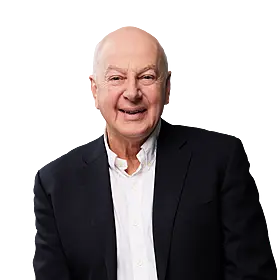You might have been asked on many first dates what your “love language” is, but new research shows they’re too “simplistic”.
The love languages were first introduced by Baptist and marriage counsellor Gary Chapman in 1992 and have become very popular, particularly with the rise of social media.
Mr Chapman found in his own experience people generally have one of five main ways to express love and preferences for partners: words of affirmation, acts of service, physical touch, quality time together, and finally and gift giving.
New research from the University of Toronto, however, has found that people don’t just have one “love language”.
Clinical psychologist Stephanie Regan told Moncrieff she’s “not surprised at the pushback” the love languages are currently receiving.
“There's always been a question mark about it in a clinical sense,” she said.
“Research has never proven there anything very strong to base this assumption on.
“A lot of what Chapman did was based on his own trials and his own checks and research is supposed to be counter checked.”
Love languages 'too simplistic'
Ms Regan said love languages are “too simplistic” in many ways.
“The average person would relate to it and see something that could explain their behaviour or a lack they saw in their partner,” she said.
“If it helps explain something difficult between partners, I think it’s good.
“You're going wrong if you think they’re absolute or the whole story.
“Relationships are multi-faceted as anybody knows and there are many things involved beyond how you relate to each other.”
'Relationships change'
Ms Regan pointed out we all express the love languages in different ways at different times.
“Physical touch is massively important at all times, but other things come into pay and you live together, as you have children together, as you change.
“It's not about a single communication style, but maybe you have a tendency to be more in one style.”
She advised people can learn about love languages and see what their preferences, but not turn into a new form of astrology.
Listen back here:









